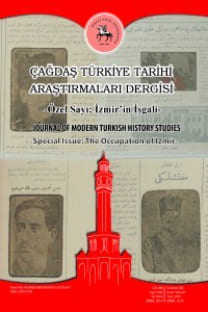II. Meşrutiyet’i Yeniden Düşünmek
İkinci Meşrutiyet, siyasetin yeniden şekillendiği, siyasal partilerin, cemiyetlerin ve basının çeşitliliğinin arttığı, seçimler ve daha birçok alandaki yeniliklerle Türk siyasal hayatının önemli bir kesitini oluşturmaktadır. Tarık Zafer Tunaya’nın öncülüğünde ve sonrasında onlarca tarihçinin Modern Türkiye tarihinin temellerini oluşturan İkinci Meşrutiyet olgusuna ilişkin incelemeleri, günümüzde yeniden ve ayrıntılarıyla ele alınmaktadır. Gerçekten de bu sürece ister “Cumhuriyet’in arka planı” isterse “Cumhuriyet’in laboratuarı” adını verelim mutlaka incelenmesi ve yeni bakış açılarıyla değerlendirilmesi gerekmektedir. Bu düşünce doğrultusunda İkinci Meşrutiyet’in 100.Yıldönümünde Türk Tarih Vakfı’nın İzmir Ekonomi Üniversitesi ile birlikte 19-21 Eylül 2008’de düzenlediği 3 gün süren “2008’den 1908’e Bakışlar” sempozyumu ve sonrasında burada sunulan bildirilerin bir kısmının basımıyla “II. Meşrutiyet’i Yeniden Düşünmek” adlı kitap oluşturulmuştur. Zeki Arıkan, Orhan Koloğlu, Fevzi Demir, Efdal Sevinçli, Fatmagül Berktay, Suavi Aydın ve Ömer Türkoğlu, Burçak Madran vd’nin kitapta yer alan makaleleri bu çalışmada betimlenmeye çalışılacaktır
Anahtar Kelimeler:
II. Meşrutiyet, Cumhuriyet, 1908 Devrimi, Jön Türkler
RETHINKING THE SECOND CONSTITUTIONAL MONARCHY
As far as the history of Ottoman Empire is concerned, the Second Constitutional Monarchy period represents an important epoch in which the Ottoman politics was reshaped radically, the diversity of political parties, social and political organizations, and media was increased impressively, and a series of improvements, such as those concerning parliament elections, were realized efficiently. In fact, this period indicates a very significant lively section of Turkish political life. Recently, a range of studies on the Second Constitutional Monarchy period carried out by a great number of prominent historians, such as Tarık Zafer Tunaya, have been re-examined in detail because this period, in a way, functions as the foundations of the history of modern Turkey. Whatever it is called, whether “the background of the Republic” or “the laboratory of the Republic,” this particular period needs to be re-investigated and re-evaluated from new perspectives. Bearing this idea in mind, a 3-day-long symposium called “Views from 2008 on 1908” was organized by the Foundation of Turkish History (Türk Tarih Vakfı) in collaboration with İzmir Economy University (İzmir Ekonomi Üniversitesi) between the 19th and 21st of September 2008, on the 100th anniversary of the Second Consitutional Monarchy. A partial collection of the papers presented at this symposium were compiled into a consequential book called “Rethinking the Second Constitutional Monarchy.” In the present review, we are going to try to analyze a series of significant articles from this book, prepared by Zeki Arıkan, Orhan Koloğlu, Fevzi Demir, Efdal Sevinçli, Fatmagül Berktay, Burçak Mardan, Suavi Aydın, and Ömer Türkoğlu
- ISSN: 1300-0756
- Yayın Aralığı: Yılda 2 Sayı
- Başlangıç: 1991
- Yayıncı: Dokuz Eylül Üniv. - Atatürk İlkeleri ve İnkılap Tarihi Enst.
Sayıdaki Diğer Makaleler
II. Meşrutiyet’i Yeniden Düşünmek
“En Büyük Tehlike” Broşürü ve Buna Bağlı Olarak Turancı Akımların Kamuoyunda Tartışılması
Türk Devrim Tarihi: I (Temelleri, Oluşumu ve Gelişimi)
Yeni Alfabenin Kabulü Sonrası Mersin’de Açılan Millet Mektepleri ve Çalışmaları
İbrahim BOZKURT, Birgül BOZKURT
İzmir Karantina Teşkilatının Kuruluşu ve Faaliyetleri (1840-1900)
Türk Deniz Ticareti Tarihi Sempozyumu 2010 (9 Nisan 2010)
The Turkish Sisyphus. Atatürk, Islam and the Quest for European Modernity
Arşiv Belgeleri Işığında İkinci Dünya Savaşı Sürecinde Türkiye’de Mülteciler ve Esirler Sorunu
